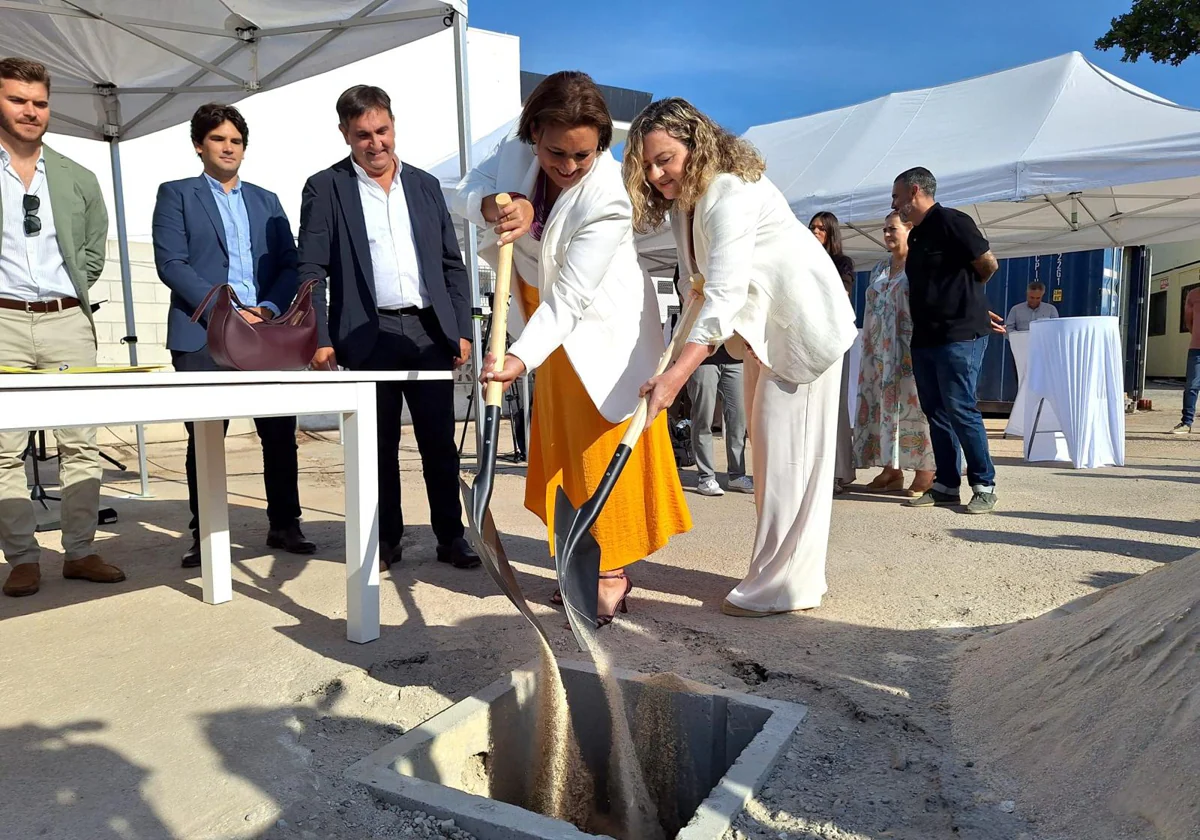Foundation stone laid for Oceanika flex-living complex in Torremolinos
The official ceremony was held on the plot of land where the recently demolished Hotel Los Álamos once stood, and where the new 180-apartment complex for digital nomads will be constructed
Mayor of Torremolinos Margarita del Cid and members of her council attended the official laying of the first foundation stone ceremony of Oceanika, the largest flex-living space in Malaga province and the largest wooden construction by volume in the whole of Spain. Also present at the ceremony, carried out on the land where the recently demolished Hotel Los Álamos once stood, were Luis Acacio, deputy director of Nuovit, and Juan Francisco Gil, architect of Egoin, the company in charge of the construction of the complex.
"The old Hotel Los Álamos, a landmark at the entrance to the town, had become an abandoned, inhospitable place over the years. For that reason alone, the renovation of this space has meant progress and a more than necessary change of scenery. Secondly, because of the nature of this renovation. In fact, the word renovation is an understatement. It is, without a doubt, a regeneration, a revolution in many dimensions and facets. The commitment to energy efficiency, to sustainable materials, to the importance of wood, which is going to be one of the most defining elements of the project, make us face something very special," the mayor said.
Oceanika will have 180 apartments, mainly for digital nomads, and distributed over more than 15,000 m², consolidating itself as a benchmark in sustainability and efficient construction. The complex, which open its doors in the second half of 2025 and which will be managed by HABYT, the main operator of this type of accommodation in Europe, offers a new concept of coexistence that adapts to the needs of modern urban life, with services such as a gym, coworking and green areas, and a strategic location that connects it with the main points of the province.
The strategic location guarantees direct and efficient communication with Costa del Sol airport, the high-speed train station, as well as the centre of Torremolinos and Malaga, making it a benchmark for accessibility and comfort for its residents.
"This building, of which we are laying its first stone today, is a declaration of intent: urban regeneration is a reality, and it is thanks to the impetus of a public and private initiative. This government team was convinced of its suitability from the first moment, and the promoters have not hesitated to choose Torremolinos and this location for Oceanika," the mayor added.
Sustainability and efficiency in every detail
Oceanika has been conceived since its inception as an environmentally responsible project, using environmentally friendly materials, such as wood from sustainably managed forests certified by PEFC and FSC. This innovative construction will significantly reduce the carbon footprint and the execution time of the work, setting a precedent in the industrialised construction of homes in Spain.
The project is a clear exercise in urban regeneration, replacing the old hotel, abandoned for more than a decade, and reusing a large part of the waste generated in the demolition, as a first step in contributing to the circular economy.
In addition, the complex will be equipped with state-of-the-art technologies in energy efficiency. These include a dual-flow mechanical ventilation system for energy saving, solar panels on the roof, hot water production through aerothermal energy, air conditioning with high-efficiency heat pumps and a bioclimatic design approach that optimises sunlight and natural ventilation. All this without forgetting its commitment to complete electrification, thus avoiding the emission of polluting gases.
The architectural design has been developed by the Bakpak and Eova studios, who have achieved a perfect balance between aesthetics, functionality and sustainability, creating an environment that favours the well-being of residents and optimises natural resources.

